Climbing, like any other thing in life, can sometimes get complicated. Are you struggling with finding motivation for climbing or training at the moment? Let’s talk about how to find the climbing psych and how to share it.
How does the climbing psych feel?
It feels good—and once you’ve experienced it, you can’t miss it! 😃Being psyched for climbing is when you wake up feeling energised and eager to head to the gym or that weekend bouldering trip with or without your friends.
You might assume it’s easy to feel psyched when you love climbing. And I honestly think this is also the reason why we feel sooo guilty when the climbing blues strikes and the same things around which, just yesterday, our world revolved, all of a sudden seem dull.
But the truth is climbing is a lifelong study. And that gives it a cyclical nature with ups and downs, learning, and growth – all of which are hard to accept at times.
Let’s explore more on the subject.
Reasons why you might struggle being motivated for bouldering
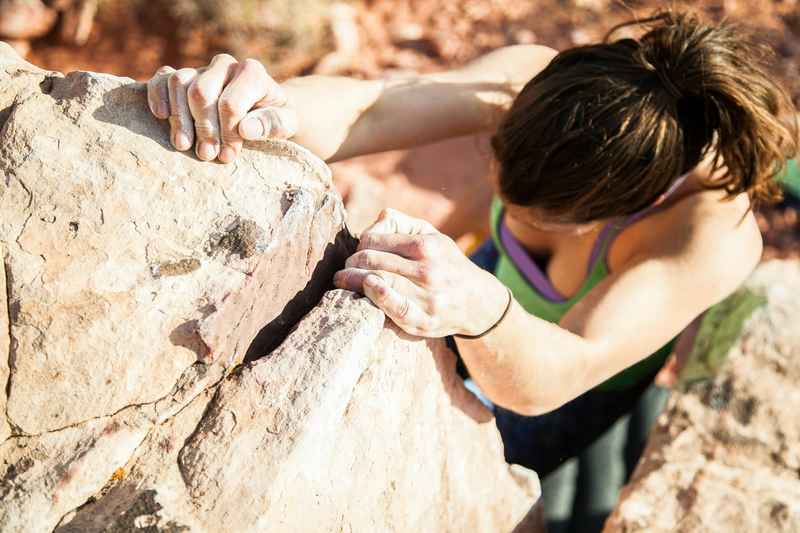
1. Fatigue, overtraining and plateauing
One might think training is never enough but sometimes too much is indeed too much. Overtraining can also lead to decreased performance, constant soreness, frequent injuries, mood swings, and a lack of motivation.
Read more about how to overcome the overtraining syndrome in climbing and how to get stronger by doing less, here.
2. A lack of routine backed up by self-distrust
Some climbers, more than others, experience fear or lack of self-trust at some point. Establishing a structured training routine can provide support when the going gets tough.
For instance, imagine you’re halfway up your route and start feeling uncertain about your climbing skills.
A hack I use is to activate my self-help strategy by getting grounded in reality.
I remind myself, “You’ve trained for this, you’ve got this, you can do it!”
Training routine can become your anchor: it gives you something to rely on and helps you trust in your ability to push through a crux.
3. Impostor syndrome in climbing
While to some climbers watching climbing movies might serve as a prime motivation for climbing, to others it can be the other way around. Especially when you are in your 9 AM to 6 PM job routine and you tend to compare yourself to others.
Therefore, many climbers feel hesitant to identify as climbers because they’re not pro athletes and it doesn’t feel “legit” to claim this title. Others ask themselves what is the meaning of all this training since they will never be like Adam Ondra or Will Bossi anyway.
As a result, their worth and performance in climbing is diminished and comes with the question “What is the point in spending all that time climbing?”
What to remember: We all know those climbing inspirational movies where pro-climbers train 5 days a week because it’s their job. But even not all of them climb the same difficulties or have the same results and they still call themselves climbers.
Climbing is a choice: so if you climb, you are a climber!
And if you need a more down-to-earth example from the climbing community, I would recommend listening to this inspiring podcast with Ashley Hardy on Climbing 5.13c with No Gym, No Training, & a Full-Time Job.
4. Social dynamics, time constraints, and access to climbing gyms or areas
In my first two years of climbing, I was hitting the gym four times a week and spending almost every weekend in the mountains. My psych was over the roof!
But the time came for me to finish my studies which meant less time for climbing and starting a full-time corporate job.
Adjusting to a different schedule than my friends was tough, but I convinced myself that I could still boulder and train alone in the mornings.
After two months of doing that, I began to lose my motivation and found myself drifting away from climbing.
Doing it without a partner to share the experience with felt pointless to me.
To sum it up, social dynamics, having to share your time between climbing and family or work (or both), and living far away from a climbing gym can be real turn-offs when it comes to keeping climbing psych!
5. Lack of goals and climbing plans
Based on conducted studies it turns out that setting and achieving goals gives you motivation and a sense of purpose. So why would climbing be any different?
For me, “just climbing to get stronger” only works if I am traveling for climbing or after sending my long-term project and I need a no-planning period.
Examples of climbing goals:
- Train to get stronger so you can climb a specific boulder problem
- Go visit a new climbing place and try a specific famous route
- Practice visualisation before hopping on climbing routes so you can improve route reading
- Grade progression: Send your first V4/V5 boulder or 5.11/5.12 sport route
- Become more comfortable on slabs
- Overcome fears related to climbing
Do you want to better understand the importance of setting climbing goals? Check out Lattice’s video.

7 ways to get your climbing mojo back
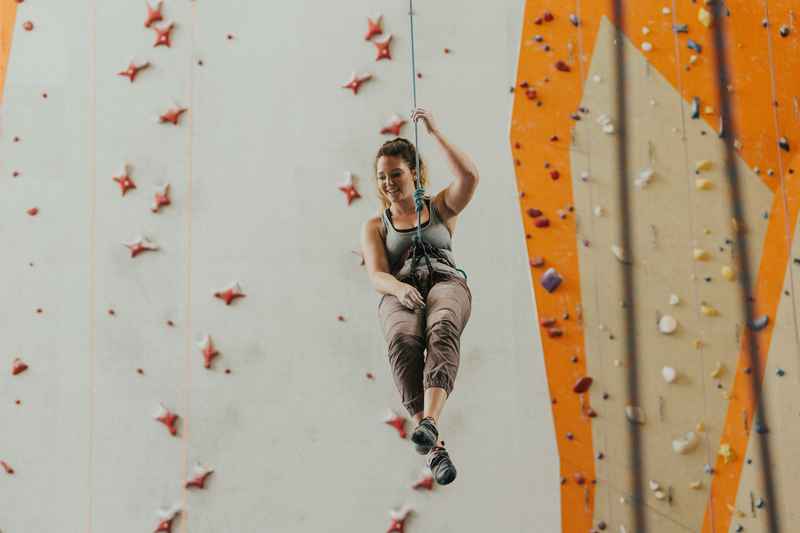
1. Don’t feel guilty for not feeling psyched
Maybe the first one and most important is not taking your lack of mojo too seriously. Not feeling motivated happens to everybody and is part of a cycle.
Sometimes all we can do is just sit and relax and try doing something else for a change – and maybe that’s all we need.
2. Reflect on the root cause
Just like with health, sometimes healing comes with finding the cause. Check in with yourself and see how you feel about climbing and your current relationship with it.
Do you feel more afraid than usual?
- Quick fix: Try focusing on low-stress climbs to rebuild confidence instead of going big, feeling scared, and “disappointing” yourself.
Do you feel like you are mentally stuck or plateauing?
- Shake things up by making a list of things you enjoy doing and do them – even if that has nothing to do with climbing.
- Sometimes doing the same thing over and over again can lead to a lack of progression or overtraining.
- Change gym locations: changing places also means meeting new people. People can be a source of energy and sometimes a shift of perspective.
- Set fun indoor bouldering challenges like doing things you don’t normally do. For me, that would be trying dynamic moves at the gym. What would be yours?
3. Commit to climbing by making plans with another person
Do you want to train but you aren’t that motivated to do so? What works for me 99% of the time is to engage in plans with other people. This way all is settled the day, the time, and the place are settled for a common goal: climbing or training for climbing.
P.S.: Just to make sure, choose someone who is not your friend so it’s harder to ditch them if you feel tempted to do so. 😃
4. Write down your goal list for the next day
Set a specific goal for the next day. Such as taking the time to warm up, do some shoulder strengthening exercises, or general body conditioning, and then start climbing.
This will save you time, and give you structure as well as a sense of accomplishment at the end of your day, regardless of whether you’re spending it at the climbing gym, crag, or bouldering.
5. Discover what part of climbing sparks you
Maybe you started out bouldering indoors and you loved it – but now it just doesn’t feel that interesting anymore.
How about taking it to the next level and going outdoors, find yourself a project that is motivating enough for you to train indoors when the weather is s**t?
Or how about trying to work your cat skills while climbing on slabs? Find your climbing style!

Another idea, more extreme but totally valid, is simply taking a break just to try other climbing styles such as trad or sport. Pro climbers do it all the time:
Watch some slabducation by Talo Martin with Pete Whittaker and Mari Augusta Salvesen

6. Watch climbing movies
Climbing movies showcase individuals pushing their limits therefore they serve as a reminder of the incredible human potential. Even though some might not work long-term, this is a quick trick that’s worth using to spark up your motivation for climbing when your level of endorphins is low.
The mix of breathtaking landscapes, belonging to a community, and individuals who overcome fear and go out to seek adventure – this is something we all identify with.
Movies like The Dawn Wall, and Valley Uprising, but also the ones outdoor brands make to promote their athletes are just a few examples for you to watch.
Are you looking for ideas for your next climbing movie night? Check out our list here.
7. Practice gratitude
I know from experience that whenever we have a constant feeling that something is missing in our lives it’s hard to remain present and appreciate the things we do have.
The fact of having access to a gym where we can train and meet like-minded people, having a sunny day to climb outdoors, and being healthy enough to enjoy all that – in the lack of gratitude, any of it can quickly lose its meaning.
I must admit that it often takes some time to pinpoint the source of my feelings.
Whenever I find myself feeling unsatisfied, I make it a priority to take some time for myself, and:
- I make a list of the things I appreciate in my life
- I practice stillness through yoga as a gentle reminder to stay in the present moment and helps me center my focus
Here’s a good listen on practicing gratitude in climbing with Lizzy VanPatten, a rock climber and the founder of She Moves Mountains, a guiding company.
Are you struggling with motivation for climbing at the moment?
The more I learn, the more I understand that the things we love at times need maintenance work but also space.
Just because we love doing something doesn’t guarantee that we’ll always feel inspired to engage in it. Our motivation can rise and fall, and that’s simply part of the journey.
Change is a constant in life, and we need a variety of experiences to grow. Sometimes, our climbing takes us in unexpected directions.
Whether you’re overcoming mental barriers, reconnecting with the joy of movement, or simply soaking up the sun – each step is a reminder of why you climb.
Being kind to yourself during the highs and lows and nurturing your passion can sometimes mean staying open to trying new things.
After all, what’s the point of doing repetitive actions that don’t bring you joy anymore?
So take a deep breath, and allow the psych to find its way back to you.

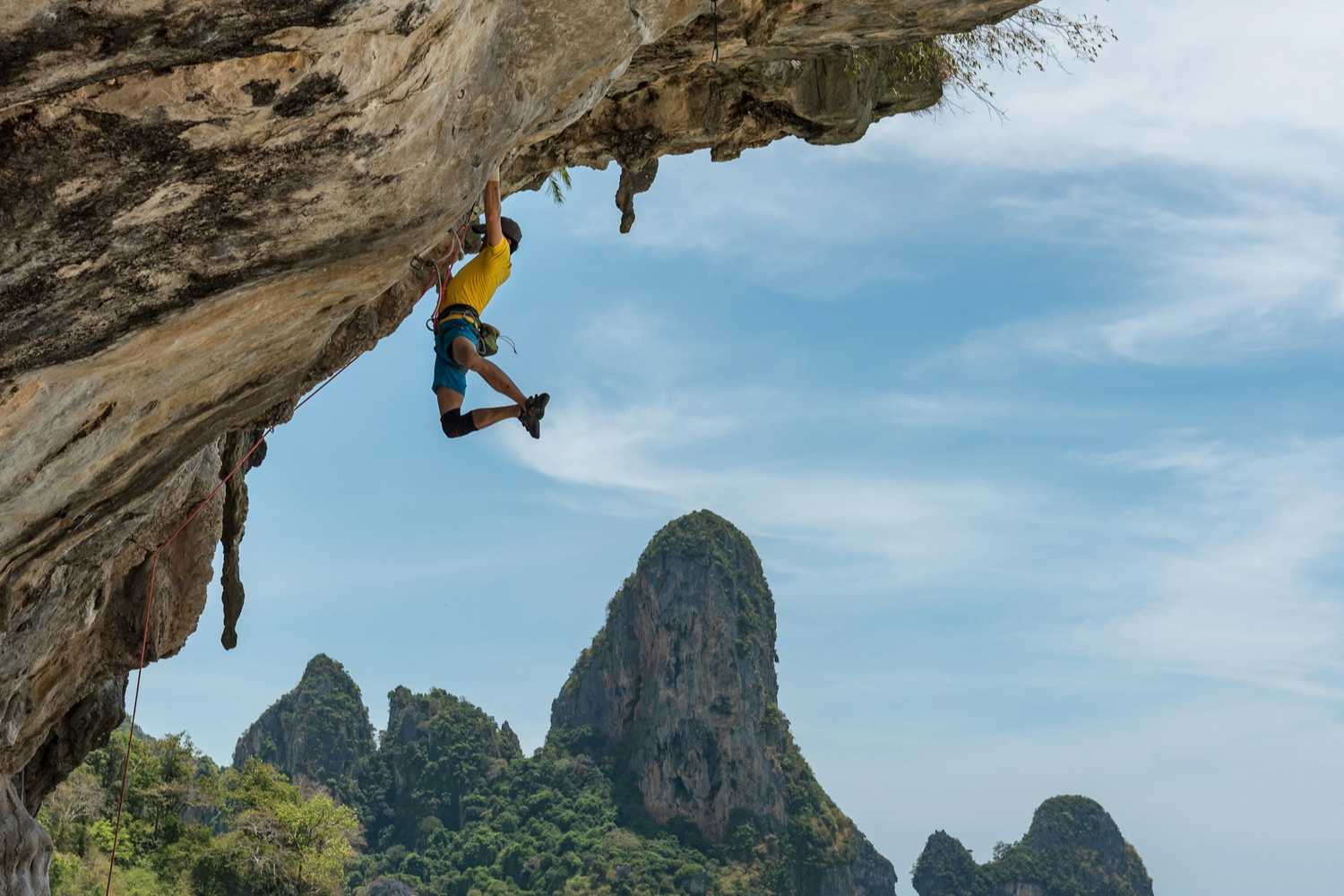



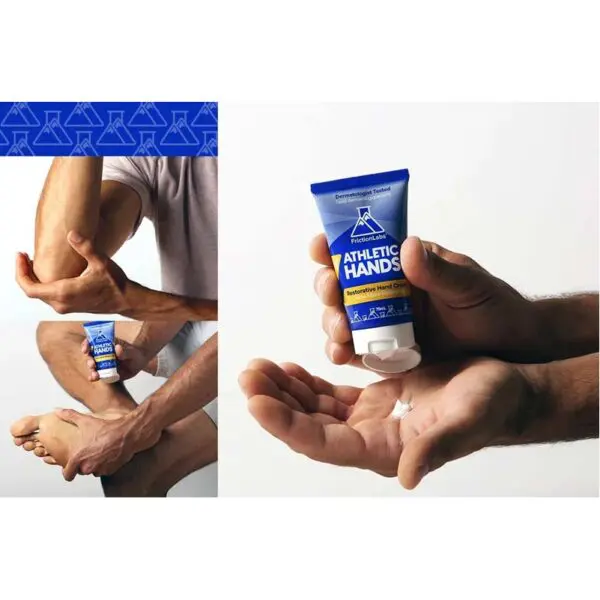










































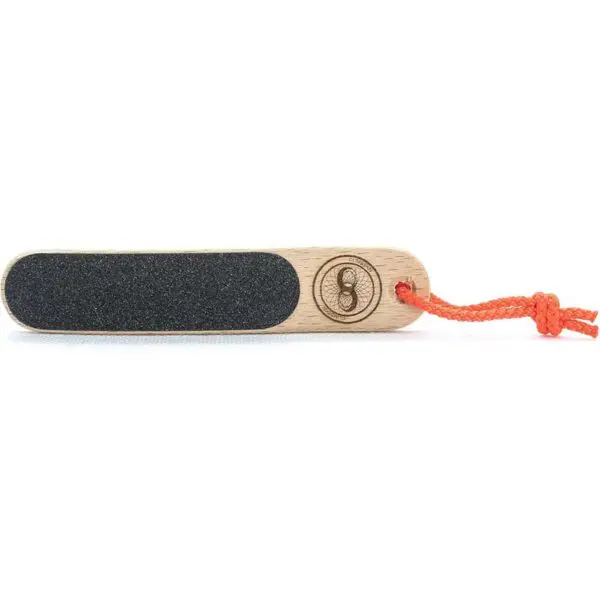










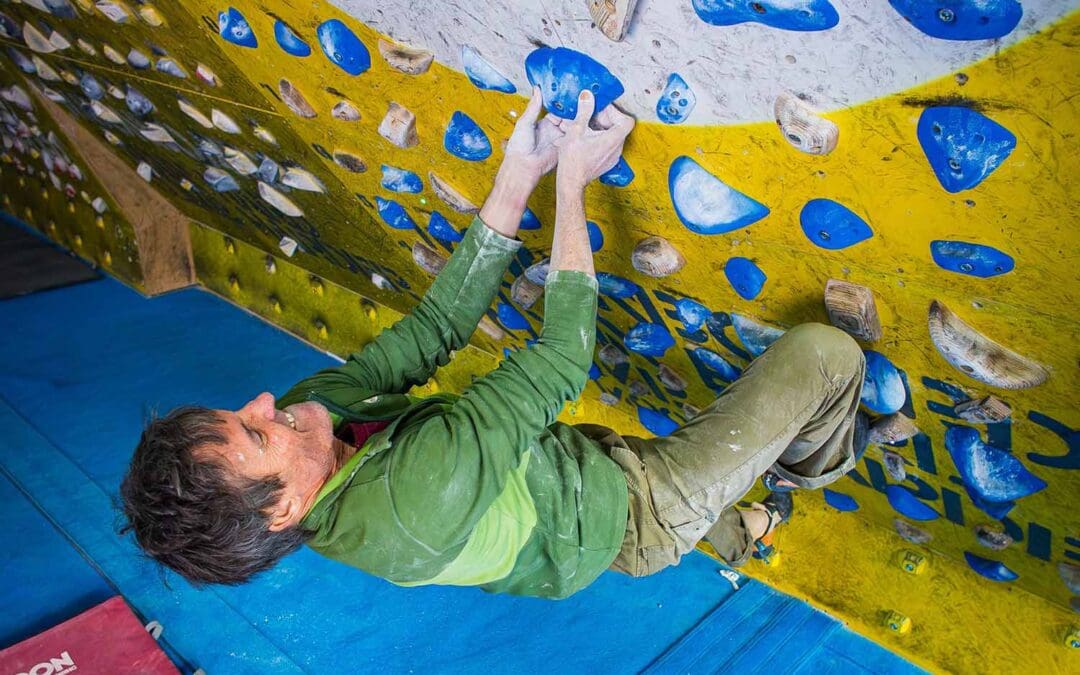

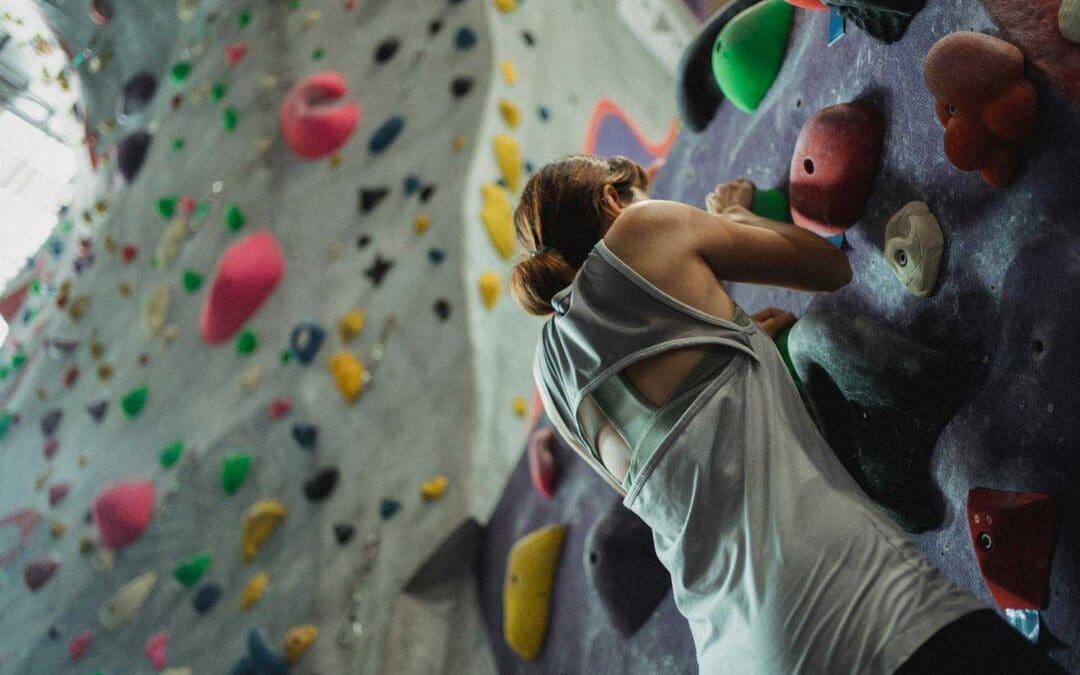

0 Comments